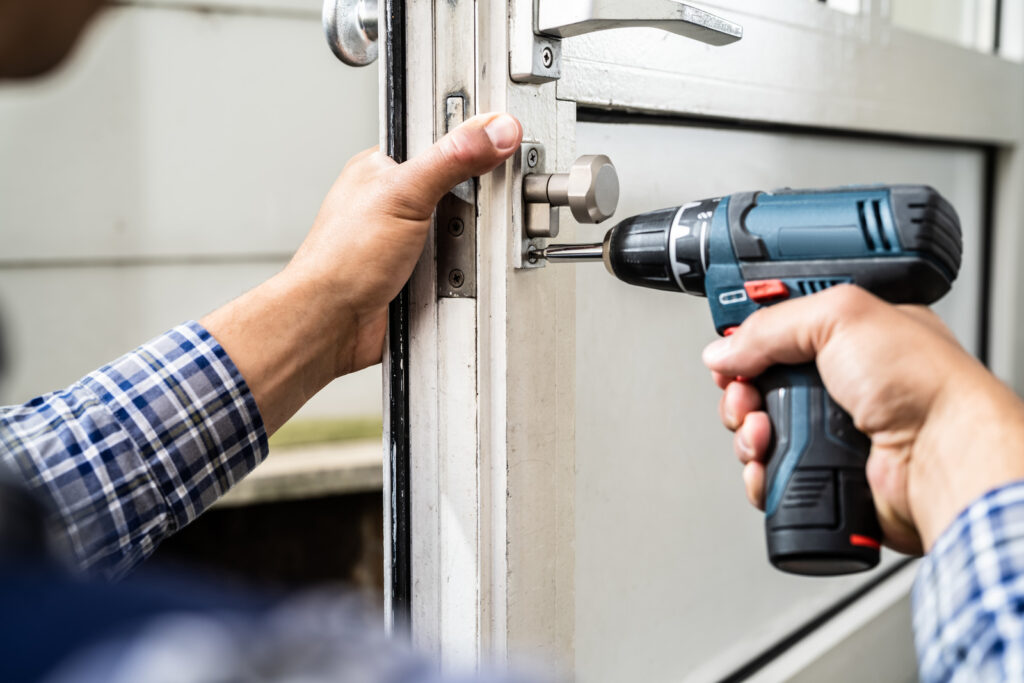In locksmith and security, myths and misconceptions often abound, leading to misunderstandings and potentially compromising our safety. Whether it’s about the trustworthiness of locksmiths or the invulnerability of certain security measures, debunking these myths is crucial for making informed decisions about protecting our homes, businesses, and belongings. Let’s delve into five prevalent myths and uncover the truth behind them.

Myth 1: All Locksmith are Untrustworthy
This myth casts doubt over the locksmith profession, suggesting that locksmiths cannot be trusted. However, this blanket assumption couldn’t be further from the truth. While it’s undeniable that there are unscrupulous individuals in every field, most locksmiths are dedicated professionals committed to ensuring the security and safety of their clients.
Debunking this myth involves highlighting the importance of seeking certified and reputable locksmith services. Professional locksmiths undergo rigorous training and licensing processes to acquire the necessary skills and credentials. By doing thorough research and selecting trusted locksmiths with positive reviews and credentials, individuals can find reliable professionals they can trust with their security needs.
Myth 2: Any Lock Can Be Picked Quickly and Easily
This myth perpetuates the misconception that picking locks is a simple task that can be accomplished in seconds. In reality, modern lock designs incorporate advanced mechanisms and security features, making them highly resistant to picking attempts.
Debunking this myth requires understanding the complexity of modern lock designs and the skill and time required to pick them. Professional locksmiths undergo extensive training to master the art of lock picking, and even then, it can be time-consuming. High-security locks are designed to withstand picking attempts and offer enhanced protection against unauthorized entry.
Myth 3: DIY Locksmithing is Easy and Cost-Effective
Some people believe they can save time and money by tackling locksmithing tasks themselves. However, DIY locksmithing can often lead to costly mistakes and security vulnerabilities that may compromise the safety of their property.
Debunking this myth involves emphasizing the importance of professional locksmith services for proper lock installation, repair, and maintenance. Locksmiths possess the specialized knowledge and skills to address security concerns effectively and ensure locks function correctly. Investing in professional locksmith services not only ensures the security of your property but also provides peace of mind, knowing that the job has been done correctly.
Myth 4: Key Duplication is Always Safe and Secure
Many people assume that duplicating keys is a straightforward and risk-free process. However, unauthorized key duplication can pose significant security risks, especially if keys fall into the wrong hands.
Debunking this myth involves educating individuals about the importance of controlled key systems and restricted keyways for enhancing security. Professional locksmiths can provide solutions such as restricted key systems that prevent unauthorized key duplication and provide greater control over access to your property. By implementing secure key management practices and working with trusted locksmiths, individuals can effectively minimize the risk of unauthorized access and protect their property.
Key duplication is a safe and straightforward process when performed by authorized individuals and using reputable services. However, the potential risks arise when keys are duplicated without proper authorization or oversight. Unauthorized key duplication can occur through various means, such as unscrupulous individuals gaining access to keys without permission or exploiting vulnerabilities in the key duplication process.
One significant risk associated with key duplication is the potential for keys to fall into the wrong hands. If an unauthorized individual obtains a copy of a key, they could gain access to secure areas or property without detection. This poses a significant security threat, especially when the unauthorized individual has malicious intentions, such as theft or vandalism.
Another concern with key duplication is the quality of the duplicated keys. Poorly duplicated keys may need to be fixed, leading to issues such as jammed locks or keys breaking off inside locks. This poses an inconvenience and compromises the property’s security by creating vulnerabilities that intruders could exploit.
Myth 5: Electronic Locks Are Invulnerable to Hacking
With the rise of electronic lock systems, some people believe they are immune to hacking and cyber-attacks. However, electronic locks are not without vulnerabilities and can be compromised if proper security measures are not in place.
Debunking this myth involves raising awareness about common vulnerabilities in electronic lock systems, such as weak passwords and software bugs. Implementing robust cybersecurity measures, such as regularly updating software and using strong, unique passwords, is essential to safeguard electronic lock systems effectively. By staying informed about potential threats and taking proactive steps to mitigate risks, individuals can maximize the security of their electronic lock systems.

In Conclusion
In conclusion, debunking this common locksmith and security-related myths is essential for making informed decisions about protecting our homes, businesses, and belongings. By seeking out trusted locksmith professionals, understanding the complexities of modern lock systems, and implementing robust security measures, individuals can effectively enhance their safety and security.
Moreover, understanding the risks associated with unauthorized key duplication and the vulnerabilities of electronic lock systems underscores the importance of implementing robust security measures. Collaborating with reputable locksmith professionals and investing in secure lock systems not only enhances the physical security of our properties but also provides invaluable peace of mind, knowing that our assets are adequately protected.